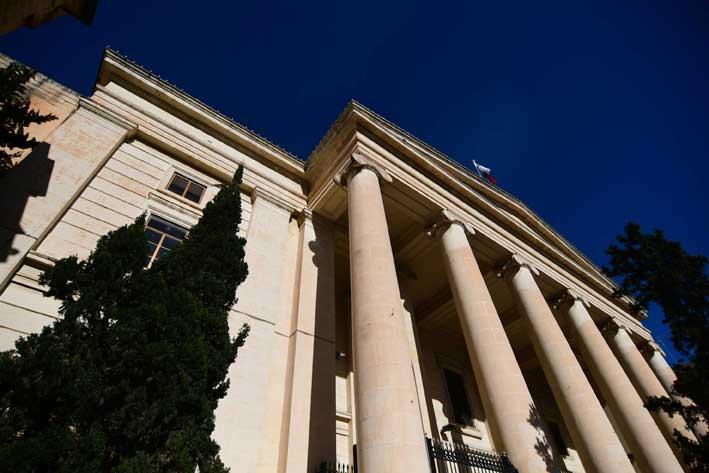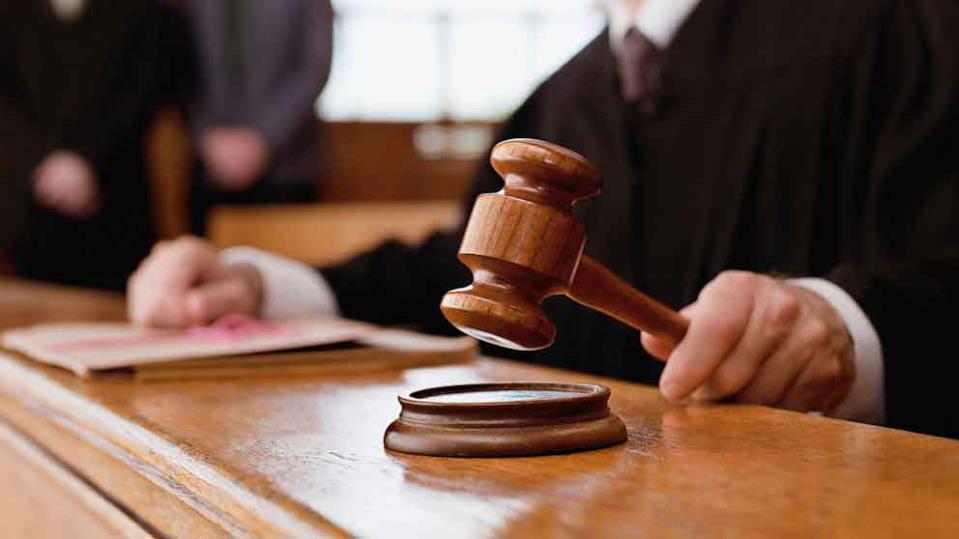In a statement today, the Council of Europe's Venice Commission legal experts said that it has adopted an opinion which finds that the power of the Prime Minister in Malta widely overshadows other government bodies, including the President, Parliament, the Cabinet of Ministers, the Judiciary and the Ombudsman.
While the full test of the as-adopted opinion will be made available on Monday, The Malta Independent had acquired a copy of the draft version before-hand. The draft report read that the wide powers of appointments that the Prime Minister - as an office - enjoys, make this institution too powerful and create a serious risk to the rule of law.
The European Commission for Democracy through Law - better known as the Venice Commission's role is to provide legal advice to its member states and, in particular, to help states wishing to bring their legal and institutional structures into line with European standards and international experience in the fields of democracy, human rights and the rule of law.
The Parliamentary Assembly of the Council of Europe's (PACE) Legal Affairs Committee had asked the Venice Commission to provide an opinion on Malta's constitutional arrangements on the separation of powers and the independence of the judiciary and law enforcement bodies. A few days later, Justice Minister Owen Bonnici requested an opinion on Malta's legal and institutional structures of law enforcement, investigation and prosecution in light of the need to secure proper checks and balances, and the independence and neutrality of the institutions and their staff, whilst also securing their effectiveness and democratic accountability.
Representatives of the commission came to Malta in November and met with the Acting Prime Minister, the Justice Minister, the Chief Justice, the Judges' Association, the President of Malta, the government's Parliamentary Whip, Opposition Members of Parliament, the Ombudsman, the Police commissioner, the Malta Police Association, the Police Officers Union, the Dean of the Faculty of Law, and representatives of Civil Society.

Reforms not sufficient
In their draft opinion, the Venice Commission welcomed that the Maltese government had already embarked on a process of reforms, however says that these reforms are not sufficient. "The Commission notes that all its interlocutors acknowledged the need for further reform of the institutional settings, notably as concerns the judiciary and particularly, the role of criminal prosecution."
The Commission said that it hopes the necessary consensus for change at the constitutional level can be achieved.
"The Prime Minister is at the centre of power and other actors (the President, Parliament, the Cabinet of Ministers, the Judiciary, the Ombudsman) have too weak an institutional position to provide sufficient checks and balances."
On the judiciary, the Commission states in the report that judicial power is the field in which the delegation encountered calls for reform from nearly all stakeholders, "notably as concerns the role of the prosecution. Judicial appointments are another topic which merits special attention."
The Commission, in their draft opinion, highlight that the introduction of the Judicial Appointments Commission in 2016 was a step in the right direction, however falls short of ensuring the independence of the judiciary. "The double role of the Attorney General as advisor of the government and as prosecutor is problematic," the draft opinion reads.
"A part-time Parliament is too weak to exercise sufficient control over the executive branch of power (government). The wide powers of appointments, that the Prime Minister enjoys, make this institution too powerful, and create a serious risk for the rule of law."
"Taking into account the Prime Minister's powers, notably his or her influence on judicial appointments, crucial checks and balances are missing," the report reads. "The problem is accentuated by the weakness of civil society and independent media."

Recommendations
The Commission made a number of recommendations to deal with these issues in their draft opinion report. Firstly, the commission said that judicial vacancies should be announced (and says that currently they are not), and that an enlarged Judicial Appointments Committee should vet and rank applicants, including for the position of Chief Justice, and the committee should propose candidates directly to the President of Malta for appointment.
The report highlights that currently, the President appoints judges and magistrates acting in accordance with the advice of the Prime Minister. A Judicial Appointments Committee was established in order to vet candidates for judicial appointments to make recommendations to the Prime Minister, through the Minister responsible for justice, about its evaluation on the eligibility and merit of the candidates for appointment, except in the case of the chief Justice.
The Commission, in their draft opinion report, stated that the Judicial Appointment's Committee's role, in effect "is to identify a pool of candidates for the judiciary from whom the Prime Minister has an uncircumscribed statutory discretion to appoint judges and magistrates."
The Commission also states that the dismissal of judges and magistrates should not be made by Parliament, and that judgements by the Constitutional Court finding legal provisions unconstitutional should have erga omnes force. "Laws of provisions thereof that have been found unconstitutional by the Constitutional Court remain 'on the books' and are not removed from the body of laws. It is up to Parliament to repeal or amend such laws. In practice, this seems not to happen in all cases and the Constitutional Court is faced with repetitive cases."
"The execution of judgements of the Constitutional Court is an essential requirement of the rule of law. Leaving the choice of whether or not to follow the judgements of the Constitutional Court to Parliament does not live up to this requirement." The Commission recommends amending the Constitution so that, when a legal provision is found to be unconstitutional by the Constitutional Court, it loses legal force with the publication of the court judgement. It suggests that the Constitutional Court be empowered to postpone the entry into force of the repeal of the provision concerned by a specified period in order to avoid gaps in the law.

Splitting the Attorney General's role
The Commission recommends that an independent Director of Public Prosecutions (DPP) be established, who would take over prosecuting powers and corresponding staff from the Attorney General, and the police. This is not the first time the Attorney General's double role has raised concerns, with this issue having been raised in the past. This DPP would also absorb the function of Magisterial inquests, the Commission says.
The Commission said, in their draft opinion report, that the concentration of the powers of adviser to the government and prosecutor in one institution makes the office very powerful. "This is problematic from the viewpoint of the principle of democratic checks and balances and the separation of powers."
The Commission also highlights that the "powers of the Attorney General, as prosecutor, to start, stop and discontinue criminal proceedings, which are not subject to judicial review, do not comply with the modern notions of the rule of law. Already now, non-prosecution can be challenged in court. The powers of the new DPP should be subject to judicial review, notably as concerns non-prosecution, upon request by the victims."
'It would be preferable for the President to be more remote from the majority of the day'
Turning to the role of the President, the Venice commission believes it should be strengthened, by attributing more powers to the Office to act without the advice of the Prime Minister, "and possibly by electing the President by qualified majority."
"From the viewpoint of Constitutional checks and balances, it would be preferable for the President to be more remote from the majority of the day. The President can be an important check on the wide powers of the executive."
The Commission recommends strengthening Parliament's powers, by tightening rules on conflicts on incompatibility, "notably as concerns appointments of MPs to Officially Appointed Bodies. MPs should benefit from non-partisan information to perform their controlling function (increase of research staff or establishment of a senior consultative body)."This, they argue, should be accompanied by an increase of MPs salaries, which would allow MPs to focus on Parliamentary work.
Limit positions of trust
Another proposal is to reduce the appointing powers of the Prime Minister, "notably as concerns independent commissions and permanent secretaries." They also recommend that appointments to positions of trust should be strictly limited.
"In the Constitutional arrangements currently in force in Malta, the Prime Minister is predominant." This in itself could be unproblematic if a solid system of checks and balances were in place, the Commission said, while highlighting that the other actors are not sufficiently strong to significantly contribute to the system of checks and balances.
In terms of persons and positions of trust, the Commission highlights that there can be a legitimate need for ministers to benefit from the assistance of persons of trust who assist them in implementing their political programme, however note that the numbers of such persons should not be excessive.
The Commission said it was informed that there are some 700 such persons, and that even persons working as gardeners and drivers have been recruited under this procedure. "The Commission cannot investigate such cases. It is, however, evident that any exception to procedures that provide for appointments on merits are a danger to the quality of the civil service."